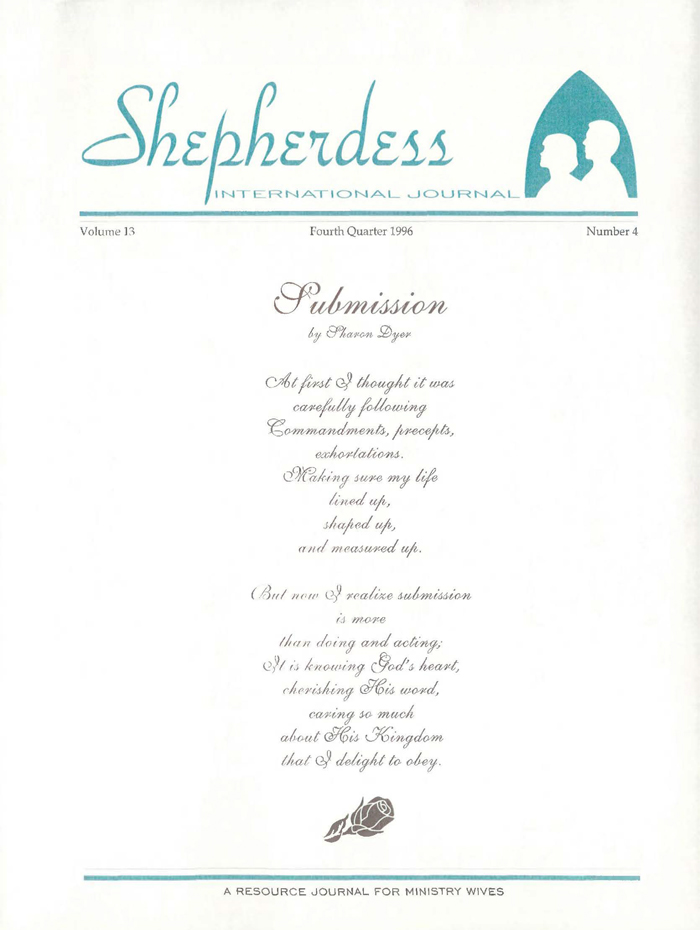Once I was asked about my favorite feminine character. Since I had to present that character in a devotional, I carefully reflected on the inspirational significance and importance of the many feminine Bible characters, and finally decided on one which is both wonderful and relevant, to me the most important of them all. No, it is not Mary, even though we are so moved by her heart's grace and humility, and the fact that she was the mother of Jesus, our Saviour. I did not choose the mothers of Moses or Timothy, whose dedication to their sacred duties is a classic example for us; or probably queen Esther, whose story stirs up our imagination so high with the splendor of her beauty and the magnificence of the court. Neither did I go for the prudence of Abigail, or the love and gratitude shown by Mary of Magdala, which is also a story of endless resources.
The character I am referring to now is greater than them all, if considered individually, because this character encompasses all those feminine virtues and multiplies them in many other facets and circumstances. This woman I am talking about, doesn't have a name, neither does she have a face. She is like those famous faceless Dominican dolls, without any features, representing the rich variety of physical features present in their people, that cannot be represented with one face.
The woman I'm referring to is the woman who didn't get her personal name written in the Bible. Even though she is mentioned indirectly, she'ls a vital and constant element of all the machinery that makes the story of God's people so strong and alive.
In Mexico, my country, the civil war made way to the insurgence of famous popular heroes, I am not referring to those that are' mentioned in the history texbooks. The names of these peasant heroes are present in the popular songs of that period and still hive in the mythical consciousness of the people. They are used as metaphors and symbols of many others that exhibited the same virtues. Within this procession of anonymous and popular heroes there are the "Juanas" and also the "Jesusitas" and the "Valentinas" (those valiant and self-denying "soladeras" who went along with their husbands in those crowded military trains, cooked for them and sometimes even fought in the battlefield when their men died before the enemy.) Well, those names really make reference to the anonymous common heroes and heroines, the true heroes of the civil war.
The Bible is full of these anonymous, common heroines, women of all ages who followed the rules and lived their everyday lives without regrets, doing what they thought was God's will. They didn't hesitate even in giving their lives, as Paul said, as a living sacrifice; every day, every moment, in honor to God, to their husbands, their children, their neighbors, their fellow men. Just think of the mothers of all Bible heroes, whose names are not recorded in the Bible. Think of the thousands that journeyed on that long 40 year path to the promised land, their feet tired and souls wearied, deprived of even a little spot that they could call home and that unique feminine experience of being queen of that little kingdom. Think of the anonymous women's choir that so many times lifted the name of Jehovah, and those skilled feminine fingers that played the tambourine and cymbals. Think of all the faithful mothers of Israel that systematically taught their children the Word of God, building a tradition followed faithfully by those women whose names, we know, like Loida, Eunice, Mary and others.
Think of those who used their fingers to weave and clothe their loved ones; to cook and to be in charge of their household with dignity and honor. And also those who cried and suffered at the death of their fathers, husbands, brothers, and friends during the hardships of Israel's difficult history as a nation. The Hebrew economy did not provide much space for the abilities or talents of a woman to flourish, except those relating to the home and family. As early as in the New Testament, you can find examples of women who contributed their financial and moral support and were acknowledged by the apostle Paul in many of his writings.
In modern times, society has required and accepted a wider feminine role. Women have added new dimensions to the spectrum of their influence and labor. It would be impossible to list all professions and tasks that women participate in modern society. We are all part of that anonymous face, distinctly feminine, casting in just one image of those virtues and talents of our beloved Bible heroines: The Ma rys, the Lydias, the Marthas, the Ruths, and the Esthers. The idea is for each to live that peculiar life God has assigned to us, using our talents to the utmost with faithfulness and joy; and being aware of the fact that there is no area in this task that is unimportant or insignificant. Every single thread makes its way throughout the pattern of the weaving. Every single one holds the others in place. Negligence or weakness in just one thread destroys the beauty and firmness of the whole. May all the single virtues depicted by the feminine Bible characters and many others, which by the grace of hod we may be able to acquire, be a part now of this great image of the Adventist woman. Not by wearing the mask of a given color, race, profession or stereotype, but in the diversity of talents and functions in Jesus Christ, God certainly will bless every one of us as we participate in the making of this wonderful image of feminine love, faith, service and living sacrifice.
